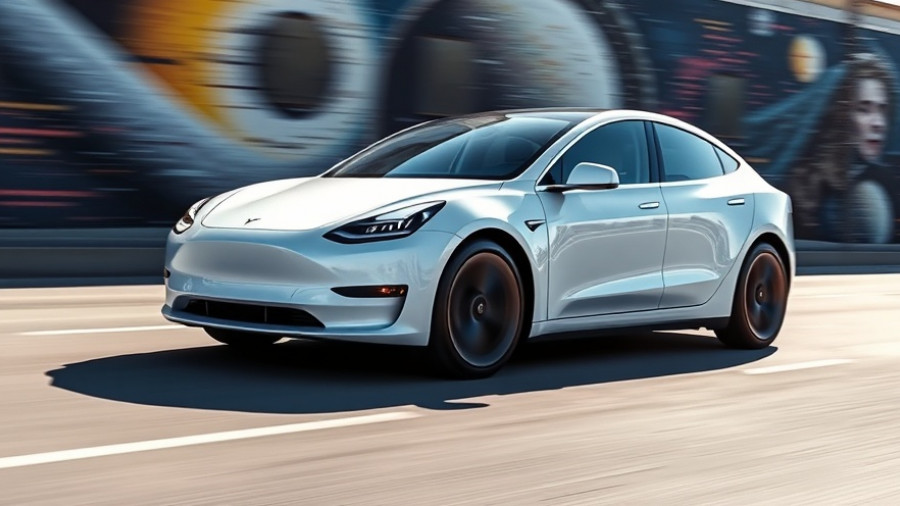
The Deceptive Allure of Tesla's Model Y Pricing
Tesla has recently lowered the starting price of its Model Y to an enticing $29,490, but with a closer examination, many potential buyers might feel that Tesla's claims are misleading. This new price seemingly positions the Model Y to be one of the best value cars of 2024, but the reality may tell a different story for financially savvy consumers.
Understanding the Fine Print in Tesla’s Pricing Strategy
While Tesla promotes significant savings on gas and highlights a massive tax credit, these factors can create a false sense of affordability. For instance, even though they advertise an initial price reduction, it can be deceptive due to how Tesla calculates estimated savings. By including approximated gas savings of $6,000—contingent upon keeping the vehicle for five years and driving it a specific distance—Tesla effectively makes the financing options look more appealing than they might actually be.
Real Costs Behind Tesla's Model Y Lease Payments
Many prospective buyers looking at leasing a Model Y might be lured by an attractive monthly payment of $268, but this figure does not reflect the true cost of ownership. Once typical taxes and fees are added, potential lessees could find themselves paying upwards of $497 per month. According to automotive analysis, this gap between advertised and real savings is not an anomaly; it raises questions about how Tesla is positioning itself within the increasingly competitive EV market.
The Ripple Effect on Used Electric Vehicle Prices
Tesla’s frequent price cuts are not just a potential issue for new buyers; they also create significant implications for the used car market. As outlined by experts, the variable pricing strategy undermines the residual value of Tesla vehicles, which can be detrimental for both new and existing owners. Sellers in the used EV market now face an uphill battle as the resale values plummet due to fluctuating prices. This phenomenon could lead to increased depreciation rates and impact the overall reliability ratings of new EV models down the line.
Comparing Tesla's Model Y with Other Electric Vehicles
As the Model Y seeks to win over buyers in the competitive landscape, it’s essential to compare its features and performance metrics to other electric vehicles. Consumers should consider not just the sale price but also the fuel efficiency comparisons, safety ratings, and long-term maintenance costs. In a broader view, using a car comparison tool could illuminate options from competitors offering similar specs at potentially lower long-term costs.
The Broader Implications of Electric Vehicle Pricing
The fluctuations in pricing and perceived affordability in the EV market raise concerns beyond the individual consumer. Analysts warn that Tesla's pricing strategy may send shockwaves through the entire auto industry, affecting how other manufacturers approach pricing and discounts. If consumers perceive electric vehicles as unreliable in terms of depreciation and value retention, the future growth of the electric vehicle market could be jeopardized. As the industry moves into 2024 and beyond, watching the trends and consumer responses will be crucial for future forecasts.
In conclusion, while the Tesla Model Y might appear to be an exceptional deal at first glance, buyers should remain vigilant. The lessons learned from appreciating real costs, potential depreciation issues, and the need for thorough research can empower consumers to make informed choices in the evolving landscape of electric vehicles.
 Add Row
Add Row  Add
Add 




Write A Comment